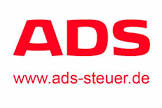AD Waste Ltd

Total capacity of implemented projects
up to 10 MW
Countries of projects presence
1
AD Waste Ltd is a UK-based company that specializes in developing renewable projects in the biomass and waste sectors. The company was founded with a mission to help the UK transition to a low-carbon economy by providing sustainable waste management solutions and generating renewable energy from waste materials.
Biomass is a renewable energy source that is derived from organic matter such as wood, crops, and agricultural waste. AD Waste Ltd has extensive experience in developing biomass projects that convert organic waste into energy. The company's biomass projects involve the use of anaerobic digestion technology, which is a process that breaks down organic waste in the absence of oxygen to produce biogas. The biogas is then used to generate electricity or heat, which can be used to power homes and businesses.
One of AD Waste Ltd's flagship biomass projects is the development of a 1 MW anaerobic digestion plant in the North West of England. The plant will process 25,000 tonnes of food waste and agricultural waste per year, generating enough electricity to power over 1,500 homes. The project will also reduce greenhouse gas emissions by diverting organic waste from landfill, which is a significant source of methane emissions.
In addition to biomass, AD Waste Ltd also specializes in developing waste management solutions that reduce the amount of waste sent to landfill. The company's waste projects involve the use of advanced technologies such as mechanical biological treatment (MBT) and energy from waste (EfW) plants.
MBT is a process that involves the mechanical sorting and treatment of waste to recover recyclable materials and organic waste. The organic waste is then processed using anaerobic digestion or composting to produce biogas or compost. AD Waste Ltd has developed several MBT projects across the UK, including a 50,000-tonne-per-year facility in the South West of England.
EfW plants are facilities that generate electricity or heat by burning waste. AD Waste Ltd has developed several EfW projects across the UK, including a 10 MW facility in the North East of England. The facility is capable of processing 250,000 tonnes of waste per year, generating enough electricity to power 20,000 homes.
AD Waste Ltd is committed to sustainability and environmental responsibility. The company's projects are designed to minimize the environmental impact of waste management and energy generation. AD Waste Ltd works closely with local communities and stakeholders to ensure that its projects are socially and economically sustainable.
The company also places a strong emphasis on health and safety. AD Waste Ltd's projects are designed and operated to the highest standards of health and safety, ensuring that its employees and contractors are protected from harm.
AD Waste Ltd's success is due to its team of experienced professionals who are passionate about renewable energy and waste management. The company's employees have a deep understanding of the technical, regulatory, and commercial aspects of renewable energy and waste management, enabling them to deliver innovative and effective solutions to clients.
AD Waste Ltd's clients include local authorities, waste management companies, and renewable energy developers. The company works closely with its clients to understand their needs and develop customized solutions that meet their specific requirements.
In conclusion, AD Waste Ltd is a UK-based company that is at the forefront of developing renewable projects in the biomass and waste sectors. The company's expertise in anaerobic digestion, mechanical biological treatment, and energy from waste technologies enables it to deliver innovative and effective solutions to clients. AD Waste Ltd's commitment to sustainability, environmental responsibility, health and safety, and stakeholder engagement has earned it a reputation as a trusted and reliable partner in the renewable energy and waste management sectors.